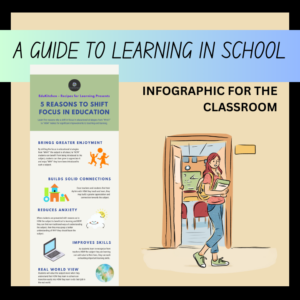In this article, we look to provide 5 educational strategies to support homeschooling activities. These activities include reasons why a change in focus with homeschooling educational strategies in can help bring success with learning.

Change Focus with Your Approaches towards Educational Strategies
By changing focus with your approaches towards educational strategies, we mean approaches that will help children build critical thinking skills as well as their problem solving skills.
For teachers, the shift of focus in educational strategies should be from WHAT we teach, to the HOW we teach, so that children can understand WHY they should learn the subject.
For children, the shift of focus in building critical thinking skills should be from WHAT we learn, to HOW we learn, so that students can understand WHY they should learn the subject.

Click to view this and other selections of digital products
Can A Change In Focus Help Educational Strategies to Support Homeschooling Activities?
This blog contains affiliate links to highlighted websites and/or resources. By clicking on the link and making a purchase we may earn a small commission at no extra cost to you. Click here for full disclosure.
Before we get in the shifting of focus when it comes to creating educational strategies to support homeschooling activities, let’s stop for a moment and reflect on how we learn.
How We Learn: The Surprising Truth About When, Where, and Why It Happens
When there is change of focus towards the subject (or how we look at the subject), then things become much easier for both parents and children in the homeschool classroom.
When homeschooling parents change the focus from what the subject is, to how the subject is to be understood, it makes it easier for children to understand why the subject is beneficial.
Homeschooling parents then can use effective instructional strategies to give their children a greater chance for building critical thinking skills and success in meeting their educational goals.
The connection between learning and classroom management and how parents can maximize the learning potential of their children helps keep their focus in the classroom.
Include Grammarly In Educational Strategies to Support Homeschooling Activities
Include Grammarly in Educational Strategies to Support Homeschooling Activities to elevate writing skills and streamline lesson planning. Grammarly is a versatile tool that offers real-time grammar, spelling, and style suggestions, making it ideal for both children and parents in a homeschool setting. It helps children enhance their writing clarity and accuracy, fostering strong communication skills crucial for academic success.

For parents, Grammarly simplifies the process of creating and reviewing lesson plans, ensuring polished and professional materials. By integrating Grammarly into your homeschooling strategies, you can build a supportive learning environment that emphasizes effective communication and critical thinking.
Educational Strategies and Homeschooling Focus In Math
Math is one subject where students need to see it as important to life, even if the topics make no connections to real life.
Teachers in teaching math should use logical strategies that show children how math helps everything we do in life, from cooking, to building their own business.

When children recognize that they are build life skills when they build their math skills, then their focus and opinion of math can change for the better.
Note: In this blog we will reference the subject, but in doing so we also imply topics and lesson plans used to in teaching the subject.
5 Reasons For A Change Of Focus In Educational Strategies
The five reasons why we, at The ETI Academy believe a change of focus in educational strategies will benefit and parents and children in building critical thinking skills and life skills that will stay with them forever.
The old Chinese proverb provides a good example of how skills bring success., The proverb states; give a person a fish, that person eats for a day, teach that person how to fish, and that person eats for a lifetime.
By changing the focus to HOW, we can better appreciate the WHAT, and the WHY as it relates to teaching and learning.

This change helps improve understanding in the classroom between children and parents, and helps students gain those top scores in school.
The 5 reasons below meant to benefit parents with their teaching strategies and help children with their learning strategies, and are as follows;
This article is meant to benefit homeschooling parents at any stage in their teaching career.
I. Fosters Greater Enjoyment Towards Learning
Teacher education courses will often discourage teacher lesson plans that indicate the teacher will directly state “Today we will be learning about…”.
But instead encourage lessons plans that use creative ways (mind maps perhaps) to get students thinking about the subject in more unique and interesting ways.

By shifting the focus in educational strategies from what the subject is all about, to how children can benefit from being introduced to the subject, they can then grow to appreciate it and enjoy why they have been introduced to such a subject.
II. Builds Stronger Connections to Learning
Which brings us to the next reason, to help children connect with the subject. When we connect with something or a subject, we associate positive emotions and feel comfortable when facing the tasks associated with teaching or learning a subject.

Once parents and children find their rhythm with how they teach and learn, they may have a greater appreciation and connection towards the subject.
When are able to help others build their own confidence and enthusiasm for the subject, they no longer feel any anxiety attached to teaching or learning.
III. Reduces Anxiety
One popular reason children avoid certain subjects is because of the high degree of anxiety they attaching to learning the material.
They simply will state that they do not enjoy what they are learning.

When children are presented with reasons as to how the subject is beneficial to learning and how they can find non-traditional ways of understanding the subject, then they may grasp a better understanding of why they should learn the subject.
Once they become more aware of the how and why associated with the subject, this then reduces their anxiety towards learning what the subject has to offer.
IV. Improves Learning Skills
Reducing anxieties means parents and children can focus on other issues, namely improving learning skills.
How we learn improves many of the skills companies look for in potential employees.

As children learn to recognize from their teacher parents and eventually on their own how the subject they are learning can add value to their lives, they can work on building important learning skills such as problem solving, communication, organization, and time management skills.
These learning skills eventually become recognized as the soft skills companies in the real world look for in potential employees.
V. Establish A Connection With The Real World
Great teachers know that it’s not enough to keep students thinking just about what they are learning. They will reference Bloom’s taxonomy when asking questions.

Children will value the subject more when they understand that how they learn in school can transition easily into how they learn to do their job in the real world.
Related Topics
Connect to our other pages as you navigate through our website. Explore what these pages have to offer you and you will be glad you did!
- Six Summer Time Activities At Home Kids Will Love
- 5 Benefits Educational Videos Bring to Homeschooling
- Five Ways EdTech Tools for Homeschooling Benefit Learning
- Helpful and Educational Math Videos for Homeschool Parents
- 10 Ways to Engage Kids With Online Learning
- Six Back to School Tips for Homeschooling Students That Are Practical
- How to Ace Any Test in A Homeschool Classroom
- The Role of Emotions in Learning Outcomes in Children
- How to Maintain Motivation in Your Homeschool Routine
- Time Management Tips for Homeschooling Teachers
Join Us Today!

Fill out the form now to gain access now!
The form you have selected does not exist.
Final Thoughts…
It is easy to see how physical health activities help the body, so it’s important for children to see how subjects help the mind.
When individuals are able to find the benefits in all they do for themselves in life, they become healthier individuals.
When we understand the benefits to how we eat, what we eat and why we eat makes for a healthier lifestyle. The same goes for education.
Homeschooling parents as teachers educate children to become independent speakers, and thinkers.
By ensuring that with every new lesson, on every new topic, in every new subject, chidlren are made aware of how they can benefit from learning, they will come to realize that their academic success comes easier.
It can help them reach educational success in turning their passions for learning into achievable goals.
Once they graduate, it can bring financial success by bringing benefit to their communities and the world in general.
Parents also benefit because of how much easier lesson planning gets when the focus is more on how will I teach, rather than what I will teach their children.

With time and experience, the homechooling parents will see that the focus does not need to be on what I teach or where I teach, but how I teach that will benefit the teacher and students in the long run.
It’s been said that as the years pass, students may not remember what the teacher taught them, but they will always remember how the teacher made them feel.
In teaching when we look at how we approach a lesson both in knowledge, and compassion, it is something that students will remember for years to come.
Share Your Thoughts
Let us hear your thoughts on our reasons for changing the focus in education and whether you agree or disagree with our reasons.



